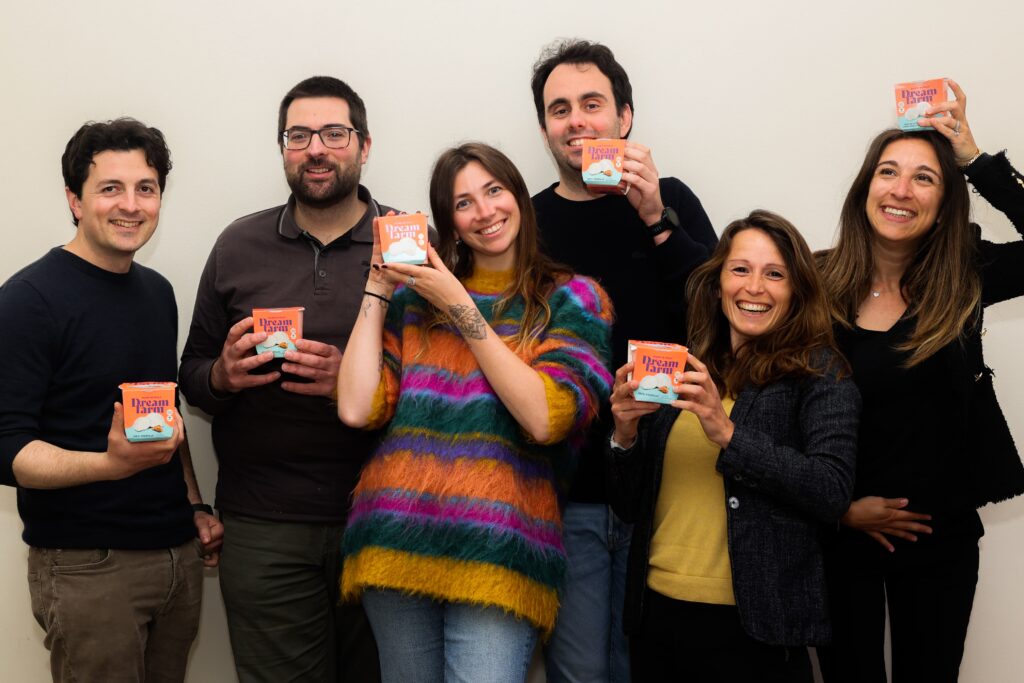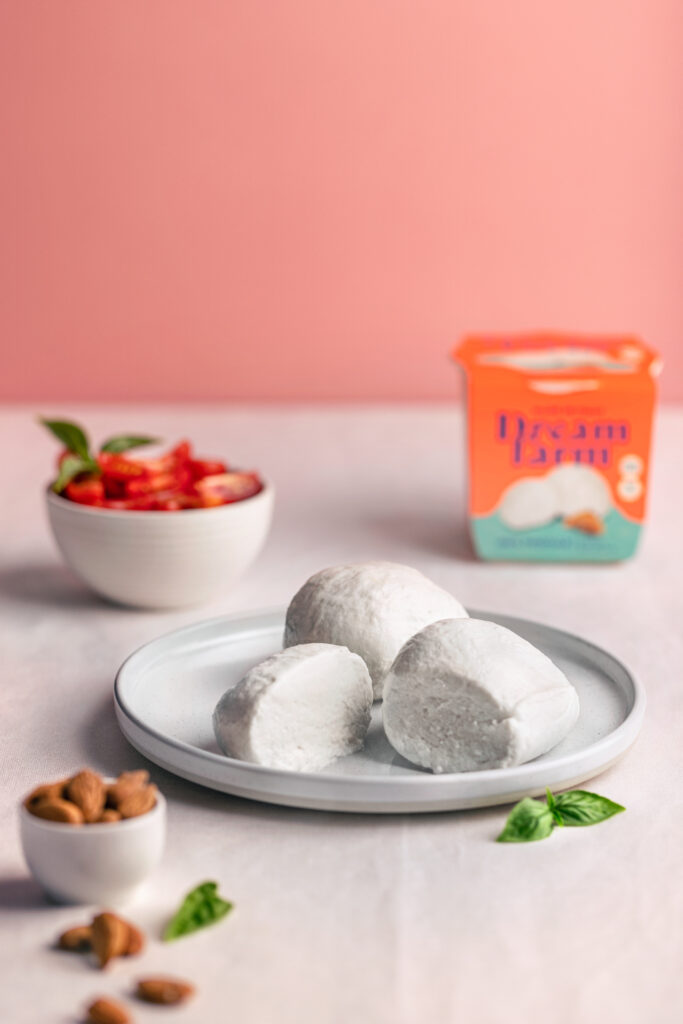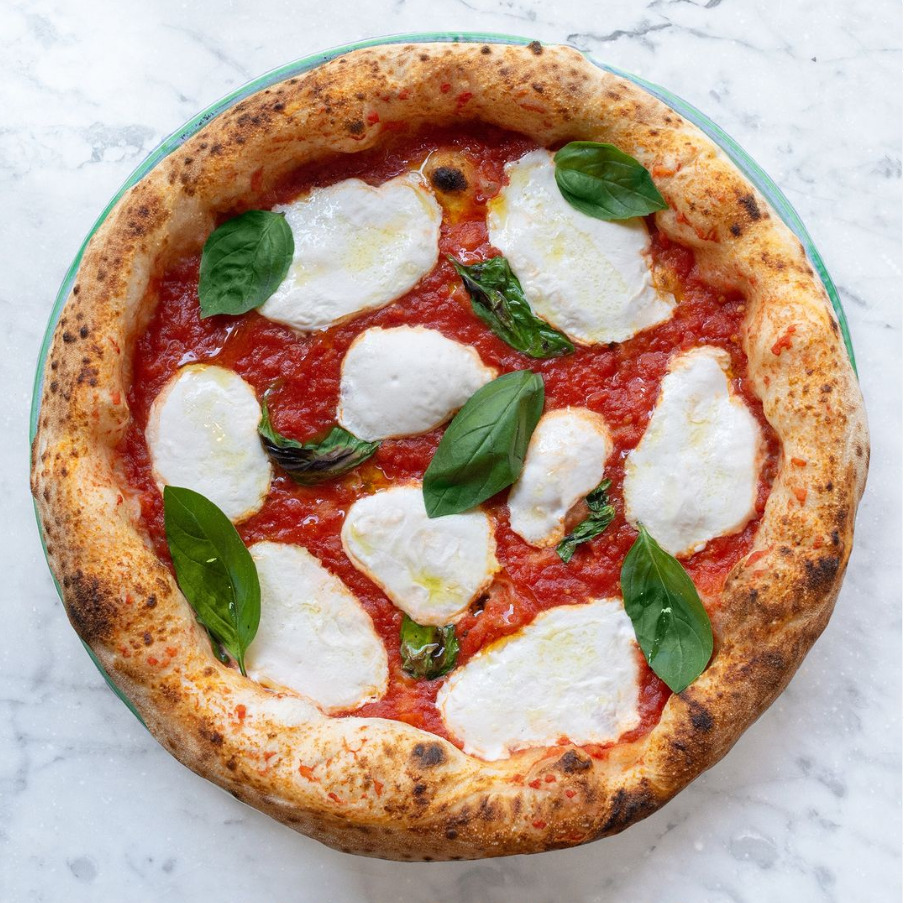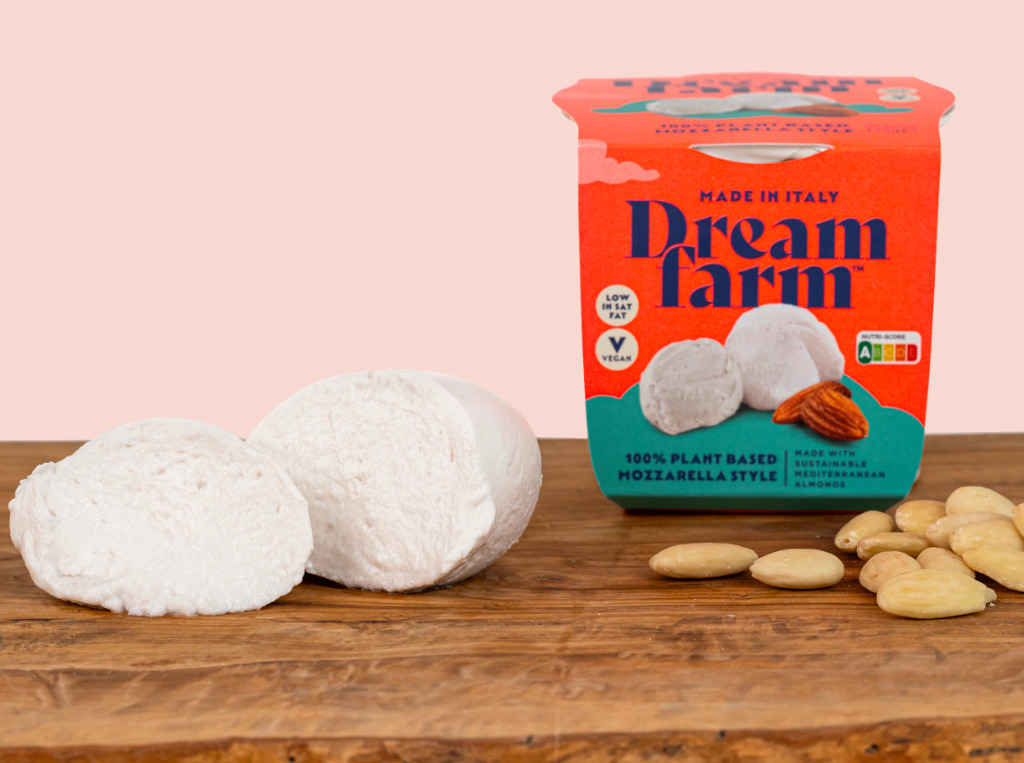Mandorla Mozzarella: Italy’s Dreamfarm Raises €5M for Healthy Fermented Vegan Cheese
6 Mins Read
Italian vegan cheese startup Dreamfarm has closed a funding round of €5M aimed at building a production hub for its patented process to make a healthier plant-based cheese alternative. Its fermented almond mozzarella and spreadable cheese have a Nutri-Score A rating.
Parma may be known for its AOP parmigiano reggiano, but one startup from the region is breaking tradition by making mozzarella from almonds.
Founded in 2021 by Maddalena Zanoni and Mattia Sandei, Dreamfarm makes vegan mozzarella balls and spreadable cheese – and while it’s not the first Italian company to do so, it does claim to be the first to have a “government-certified liquid status” and an A rating on the Nutri-Score scale.
Zanoni and Sandei were joined by CEO Giovanni Menozzi earlier this year, himself a Parma native. “It’s a dream come true to create a venture like Dreamfarm right here and have entrepreneurs of this calibre as part of our team,” he said.

Having launched into its home market this May after two years of R&D, Dreamfarm has now raised €5M in funding to take its cheeses to new heights. The investment was made by Giampaolo Cagnin – founder of Italiana Ingredienti, Campus, and Hi-Food – and Francesco Mutti, the namesake owner and CEO of Pomodoro brand the Mutti Group.
“We invested in the project because we believe there is a real opportunity to revolutionise the sector, thanks to significant technological innovations and an engaging and highly recognisable branding on the shelf,” said Cagnin.
A healthier vegan cheese
Dreamfarm’s cheeses are made by fermenting the almonds it sources exclusively in Europe. “We found [a] good nutritional and taste profile in almonds and furthermore, they are available in the Mediterranean area so more sustainable than other ingredients,” Menozzi told Green Queen.
Almonds are associated with a higher water footprint, but Menozzi explained that the majority of water used to grow its Italian and Spanish almonds comes from rain, as opposed to their Californian counterparts. (Although the Mediterranean region is expected to be one of the fastest-warming regions globally, and droughts and extreme heat can impact almond harvests massively).
It’s worth noting that while Californian almonds get a bad rep for their water requirement, an almond’s environmental footprint remains a fraction of that of cow’s milk.

Really, the USP for Dreamfarm is the nutritional aspect of its vegan cheeses. While Italians love their cheese, they’re very focused on the health credentials of the food they eat. A new Smart Protein survey published yesterday revealed that health is the most important driver for the consumption of plant-based alternatives in Italy, with 49% of the 750 respondents citing it.
This is where Dreamfarm’s cheeses come in. Its mozzarella contains a 25% almond-water base, vegetable fibre, salt, agar-agar, natural flavourings and lactic acid bacteria, while the spreadable has a 23% almond-water base, vegetable fibre, salt and lactic acid bacteria. They have an A Nutri-Score rating, which means they’re low in salt, sugar and saturated fat, and have ample protein and fibre content.
Conventional low-sodium mozzarella can have 11g of saturated fat per 100g, compared to 0.9g for Dreamfarm’s almond-based alternative. The former also has negligible fibre content, versus 3.1g per 100g for the latter (although the vegan mozzarella has over four times less protein than the conventional version). These aspects make it “appealing to consumers increasingly conscious of sustainability and nutritional profiles, but unwilling to compromise on the goodness of a typically Italian product”, according to Menozzi.
Creating a mozzarella specifically for pizza
Dreamfarm uses its own starters (developed in Belgium’s Ghent University) to ferment the almonds in what is a patented process. The new funds will help it establish a production hub in Sala Baganza, Parma, which will be equipped with specific machinery to optimise its manufacturing process.
Menozzi said Dreamfarm decided to start with mozzarella because it’s “iconic”, adding: “There was no good plant-based version on the market and it is one of the most difficult to create and replicate in terms of texture, so we wanted to challenge the status quo.” As for the spread, he candidly explained that it’s much easier to make, and was launched as you’re required to have two SKUs to be able to sell to retailers.

One reason why many vegan cheese manufacturers use a longer list of ingredients is to try and enact the stretchability and meltability of their alternatives, especially mozzarella. Since there’s less fat content in Dreamfarm’s mozzarella (12.5g per 100g versus 17g for conventional) and no casein – the dairy protein responsible for these characteristics – Menozzi admitted it melts and stretches less than a traditional mozzarella. “But the effect and taste on pizza is still nice,” he added. “We are working on creating an ad hoc version of the product for pizza recipe.”
Dreamfarm’s almond cheeses are new challengers in an Italian artisanal vegan cheese scene that already features brands like Gondino (chickpea-based), MozzaRisella (rice) and Fermaggio (cashews). “Italians are very selective and traditional about food, but that is exactly why we were really super happy and surprised by the first consumers’ feedback, as we were not expecting such a nice acceptance,” said Menozzi.
Expansion plans for Dreamfarm
The startup’s cheeses are available in both retail (through speciality vegan stores) and foodservice (via pizza chains Pizzium and Fra Diavolo). “We started in the Italian market since it was easier for us, being Italy-based, to control the first sales,” explained Menozzi.
The brand now plans to expand into the EU, starting with Belgium due to its “high penetration of plant-based”. While still commanding a small share of the market, vegan cheese has seen a 28% sales increase in Belgium from 2020-22, according to alt-protein think tank the Good Food Institute (GFI) Europe.

Dreamfarm also exhibited its cheeses at the Anuga trade fair last month in Cologne, Germany, where it received “very positive feedback”, prompting the brand to consider launching in that country as well. This would make sense, given Germany is Europe’s leading plant-based food market, as well as the biggest vegan cheese market (with sales twice as high as the next best), as per GFI Europe analysis.
The global vegan cheese market is expected to be worth $1.4 billion by the end of this year 2023, according to figures compiled by GlobalData, with the sector growing at a compound annual growth rate (CAGR) of 16.7% between 2020 and 2030. Unlike plant-based meat alternatives, plant-based dairy substitutes, including non-dairy cheese products, serve consumers with allergies and dairy intolerances, as well as those looking for more ethical and environmental foods. According to the online vegan cheese VeganCheese.co database, there are over 167 vegan mozzarella products globally.
Dreamfarm’s cash injection will be used to expand its production and distribution, as well as extend its product portfolio. “The sector is experiencing significant growth, and we are confident that we can make a global impact with the type of products we have and will continue to develop,” said Menozzi, confirming that Dreamfarm is working on more cheese alternatives. “The idea is to create, step by step, the whole portfolio of plant-based cheeses while keeping our taste and nutritional guidelines.”




